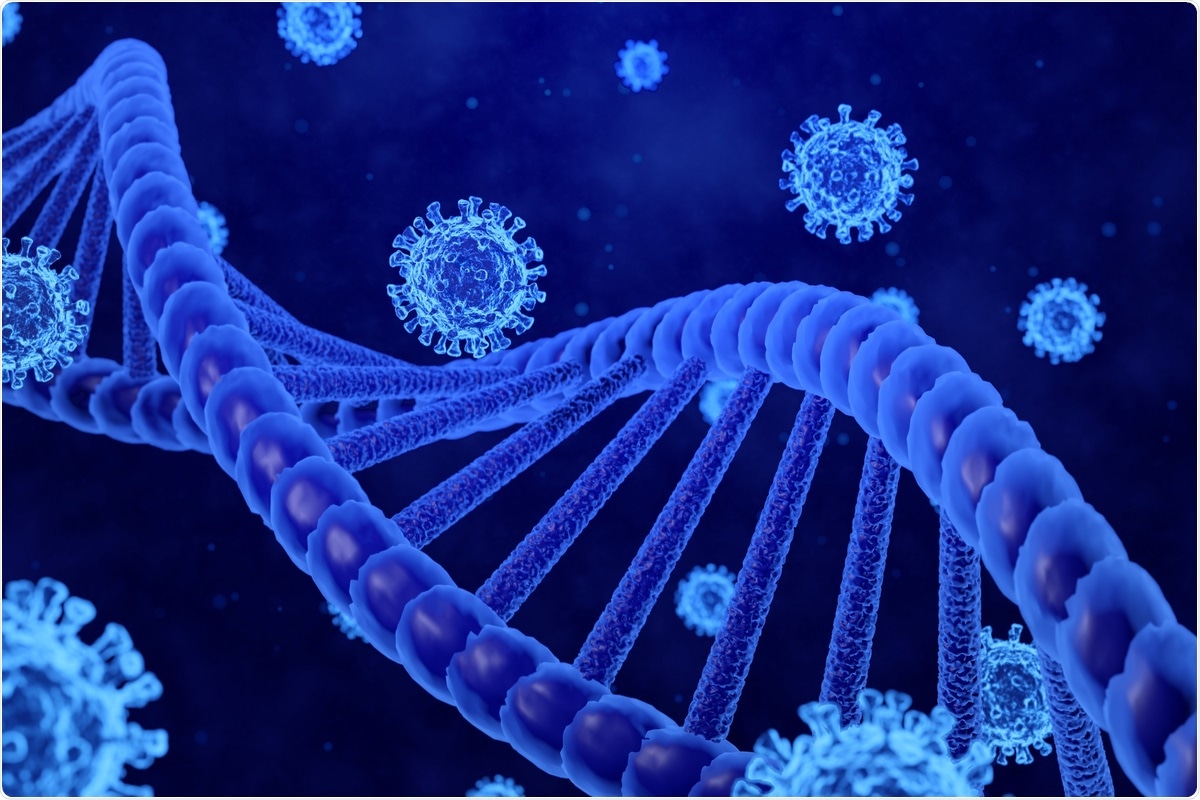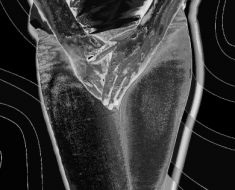A team of US-based scientists has recently revealed the changes in gene expression profiles associated with long-term consequences of coronavirus disease 2019 (COVID-19). As observed in the study, the genetic signature of post-acute COVID-19 (long COVID) can be detected in innate and adaptive immune cells already during the acute phase of severe acute respiratory syndrome coronavirus 2 (SARS-CoV-2) infection.
 Study: Acute COVID-19 gene-expression profiles show multiple etiologies of long-term sequelae. Image Credit: Jom_Ariya/ Shutterstock
Study: Acute COVID-19 gene-expression profiles show multiple etiologies of long-term sequelae. Image Credit: Jom_Ariya/ Shutterstock
A preprint version of the study is available on the medRxiv* server while the article undergoes peer review.
Background
Long-lasting clinical presentation of COVID-19, also called long COVID, is characterized by a wide range of symptoms that appear in 30% of COVID-19 patients after recovery. The most common symptoms of long COVID include generalized fatigue, headache, joint/muscle pain, breathing difficulty, sleep disturbance, and loss of smell or taste. Although long COVID symptoms have been observed in 40% of hospitalized patients, some recent evidence has shown that people with asymptomatic or mildly symptomatic SARS-CoV-2 infections are more susceptible to develop long-lasting consequences.
Host immune responses to acute SARS-CoV-2 infection are associated with long-lasting COVID-19 consequences. In the current study, the scientists have analyzed whole-blood gene expressions and antibody levels in a large group of hospitalized COVID-19 patients who had subsequently developed long COVID symptoms.
Long COVID characteristics in study population
The study was conducted on 495 hospitalized COVID-19 patients and 72 healthy and hospitalized controls. After six months of discharge, 251 patients were followed up to examine the appearance of long COVID symptoms.
The analysis of patient-provided reports revealed two distinct clusters of post-COVID consequences related to pulmonary and neuropsychiatric symptoms. However, no significant correlation was observed between disease severity and appearance of long COVID.
Gene expression profiles
Blood samples were collected from 180 of 251 followed up patients to perform RNA sequencing. The analysis identified significant associations of higher plasma cell level and lower follicular helper T cell level with long COVID pneumonia and muscle pain.
The analysis of differentially expressed genes in whole blood revealed no significant association with any symptoms. However, many symptom-related differential expression signatures were observed in specific cell types. Specifically, plasma cells exhibited the highest number of gene signatures related to various symptoms, including sleep disturbance, pulmonary complications, nausea/vomiting/diarrhea, skin rash, loss of smell or taste, and pneumonia.
Importantly, a complete downregulation of pneumonia-associated genes was observed in patients. Among other tested cell types, significant associations of gamma-delta and CD8+ T cells, CD4+ memory resting T cells and neutrophils, and CD4+ memory activated T cells with worse quality of life, teeth problems, and memory problems were observed, respectively.
Shared patterns of differentially-expressed gene signatures
Two differential expression tests were performed to identify the group of genes that were differentially expressed in both tests and were associated with the same symptoms (same-direction differentially-expressed genes). Similarly, a different group of genes was identified that showed differential expressions in both tests but with opposing symptoms (opposite-direction differentially-expressed genes).
In plasma cells, the comparison of symptoms pairwise for the number of same-direction differentially-expressed genes identified two distinct symptom clusters. These clusters were named "pulmonary cluster" (lung problems and pneumonia) and "miscellaneous cluster" (sleep disturbance, nausea/vomiting/diarrhea, skin rash, and loss of smell or taste).
In the pulmonary cluster, a downregulated expression of genes associated with antibody production and function was observed. In contrast, upregulated expressions of the same genes were observed in the miscellaneous cluster.
Association between differentially-expressed genes and antibody levels
A separate set of experiments were conducted to assess whether host response to anti-spike antibodies can influence the symptom-specific differential expression of genes in plasma cells.
The analysis revealed a significant correlation between antibody response and genes associated with most miscellaneous cluster symptoms except skin rash and loss of smell/taste. In contrast, no such correlation was observed for genes associated with lung problems and pneumonia.
Study significance
Overall, the study findings reveal that host response to acute SARS-CoV-2 infection is directly associated with the appearance of long COVID symptoms. The study identifies two distinct sets of long COVID symptoms – one mostly depends on the blood levels of anti-spike antibodies, and the other is antibody-independent.
Moreover, the study highlights the significance of acute-phase gene expression signatures in plasma cells in inducing long COVID symptoms.
*Important notice
medRxiv publishes preliminary scientific reports that are not peer-reviewed and, therefore, should not be regarded as conclusive, guide clinical practice/health-related behavior, or treated as established information.
- Thompson, R. et al. (2021) "Acute COVID-19 gene-expression profiles show multiple etiologies of long-term sequelae". medRxiv. doi: 10.1101/2021.10.04.21264434.
Posted in: Medical Science News | Medical Research News | Disease/Infection News
Tags: Antibodies, Antibody, Blood, Breathing, CD4, Cell, Coronavirus, Coronavirus Disease COVID-19, Diarrhea, Fatigue, Gene, Gene Expression, Genes, Genetic, Headache, Muscle, Nausea, Neutrophils, Pain, Pneumonia, Rash, Respiratory, RNA, RNA Sequencing, SARS, SARS-CoV-2, Severe Acute Respiratory, Severe Acute Respiratory Syndrome, Skin, Sleep, Syndrome, Teeth, Vomiting

Written by
Dr. Sanchari Sinha Dutta
Dr. Sanchari Sinha Dutta is a science communicator who believes in spreading the power of science in every corner of the world. She has a Bachelor of Science (B.Sc.) degree and a Master's of Science (M.Sc.) in biology and human physiology. Following her Master's degree, Sanchari went on to study a Ph.D. in human physiology. She has authored more than 10 original research articles, all of which have been published in world renowned international journals.
Source: Read Full Article





